Duff McKagan - Interview
by Lisa Torem
published: 27 / 8 / 2009
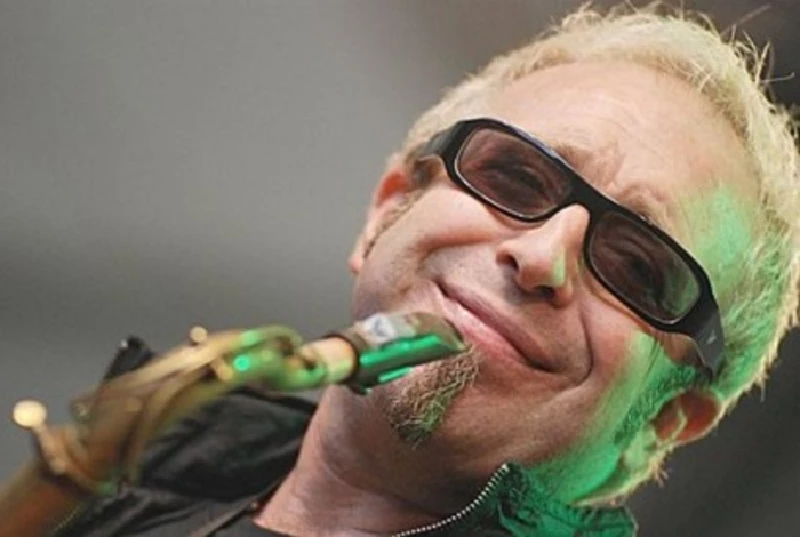
intro
Lisa Torem speaks to Chicago-based musician Mars Williams about his career both playing saxophone with the Psychedelic Furs and also as the leader of much acclaimed free jazz outfit Liquid Soul
Chicago- born Mars Williams’ inner-consciousness resembles that of Lord of the Rings character Golem. Williams battles internally with himself as he strives to constantly improve his musicianship. Whether performing, composing or promoting, Mars often feels he should be doing all of it better and more often. But, to the outside world, which includes a fiercely loyal following, Williams is a brilliant arranger and saxophonist who recoils at the thought of musical classification – that said he is an ardent aficionado of many genres, including funk, rock, rap, jazz, soul, avant garde, hip-hop, be-bop, classical, and a purveyor of acid-jazz. Mars and his current Chicago-based band Liquid Soul, received a Grammy nomination for their third release, and he currently resides in Chicago in between frequent touring, club dates, festival appearances, practicing and composing. Liquid Soul has entertained at presidential inaugurations and at the birthday parties of major sports celebrities as well as many popular Chicago venues. "Free Jazz" first developed in America in the 1950s and 1960s as a way of crashing through the limitations of bebop, hardbop and modal jazz which began in the ‘40s and 50s’. Ornette Coleman, Cecil Taylor and later works of saxophonist John Coltrane, Sun Ra and Archie Shepp further explored this phenomenon. Hal Russell, an integral proponent of this movement, and a saxophonist and drummer formed the NRG Ensemble described as “fiery music marked by significant humour.” Russell spearheaded the” free improv” and “free jazz” movement which blossomed in the ‘90s in Chicago. He led the ensemble until his death in ’92. Mars was a featured artist in these groundbreaking NRG CDs, 'This Is My House'(1996) and 'Bejazzo Gets A Face Lift'(1998). These innovative recordings attest to Mars’ ability to “stretch out” – a phrase he uses succinctly in the interview – and one which captivatingly describes his optimistic take towards pursuing artistic freedom. Mars continues touring with British-based punk band, the Psychedelic Furs. His virtuosic saxophone has been featured on two of their albums, 'Mirror Moves' (1984) and 'Midnight to Midnight' (1987) Recently, the group returned from a successful tour in Spain and in November they will return to Europe. Unlike many boys who grow up wanting to be astronauts or cowboys, Williams had a singular goal once, as an adolescent, he discovered first the clarinet and then the saxophone. And then upon discovering that this sexy brass instrument helps “get the girls”, he was hooked. Performing live, Mars eminates infectious magnetism. His aversion to strict musical categorization is well-evidenced in his constantly shifting melodic phrases, disarming tempo shifts and genre- bleeding. But, despite his implementation of these challenging elements, he never strays adrift from the other band members. His solos flow like melted butter while – at the same time – blending seamlessly with the other ensemble members at key junctions. Williams’ sparkly, blue eyes shine when he discusses how much he loves to perform and how anxious he is each day to keep music central to his life. He’s adamant that it’s a gift meant to be shared with others. On the second Psychedelic Furs recording, 'Midnight to Midnight' in a photo taken by photographer Bob Gruen (also noted for photographing John Lennon), Mars appears on the sleeve across from drummer Paul Garisto who, like Mars, holds his arms akimbo. Garisto is dressed in black, while Mars is dressed in full punk regalia – a sleeveless vest bearing the Harley Davidson motif, a black Stetson hat, a black leather belt and what looks like a belt of ammunition slung across his waist. Mars’ image today is more mainstream. He wears pedestrian clothing and dark shades, but his youthful enthusiasm belies his fifty-something age. He arrived early to the interview and politely asked if I wanted some hot coffee. Within seconds, of my grateful, affirmative response (somehow it had got to be noon and I had neglected to partake of my habitual vice), he ducked into the adjoining café. Within seconds again, he handed it to me and we found an unoccupied bench amidst toddlers and flocks of Chicago pigeons. He had informed me earlier that this interview would end his morning walk – one of his habits in terms of allowing thinking time during his busy days. A young woman stopped me after Mars vacated the pedestrian square. “Who is that?” she inquired. I told her and she mentioned that she is from Texas and had seen Mars perform there during the annual SXSW Festival. By this point, Mars was well on his way back home – anxious to get to the many tasks he does daily – composing, arranging, practicing and promoting. Busy, yes. But, he convinced me – through his ricochet of musical rhetoric - that he would never consider doing anything else. PB: Hi, Mars. Can you tell me about how you got involved with the Psychedelic Furs? MW: I was in a band called the Waitresses in the early ‘80s. I went to see my friend Gary Windo. He played sax with them at the time. I saw them backstage and we started talking. The next day I get a call that Gary couldn’t leave the country and get back in. Can you go to Australia with us? I was like "Yeah". It was perfect. We had been recording. We had time off. We did shows with Gary. We went to the Sweetwater Festival in New Zealand in front of about 30,000 people. It was a good introduction to the Furs. We did one month in Australia. It was the best tour we ever had. We had so much fun. Gary said, “Just make sure I get the gig back.” I told Gary I still have to do the Waitresses (after he got back). They said, “We’ll do it with 2 horns.” After that tour, the Waitresses broke up. The Pyschedelic Furs said in 1983, “We don’t want Gary, we want you.” We did these tours: 'Midnight to Midnight', 'Pretty In Pink', I played with them until about 1989. PB: 'Book of Days', their 1989 album, was more indie than 'Mirror Moves'. How did you feel about that? MW: There was live stuff (on there). I had left by the time it came out. About that time I recorded 'Rebel Yell'. I played with Billy Idol and Billy Squire. I did a lot in the ‘80s. It got to the point that I was getting a little strung out. I had to get my health together. I came here (Chicago) in 1990. I was living in New York before that time. PB: How did you get involved with Billy Idol and end up doing 'Rebel Yell'? MW: Keith Forsey produced 'Mirror Moves'(1984) and was the producer of 'Rebel Yell'. Keith was coming down to the show to see the Furs. Billy had the idea to put sax on 'Catch My Fall'. He said, "So let’s use Mars." Then I got back with the Furs in 2005. We were all older. We had been friends for so long. We put our resentments behind us. I love being back in the band. We just got back from Spain. They didn’t have another horn after that. Richard Butler (Psychedelic Furs vocalist-Ed)said, “Wow. This is what’s been missing.” It’s a really good vibe. It’s a good bunch of guys. We’re having fun. PB: How have things changed as far as playing with the Furs now as opposed to earlier? MW: I always enjoyed working with the Furs. We’re having a great time playing again. They were a little crazier back then. It’s hard to describe. The music sounds great. We really enjoy each other’s company. We just go out and play and have a good time. PB: How has the audience changed? MW: Older fans are older like us. There’s a younger audience that comes also. I don’t want it to seem like we’re a nostalgia band or something. We do songs from Richard’s solo albums and from Love Spit Love (Richard Butler's 1990's band-Ed). We’re still playing the old hits, but we do some of the new ones. PB: Where else did you tour? MW: There are Furs fans everywhere. Australia - great. Europe is great. Japan is great. I like doing them all. I love performing live. (Just) stick me in the concert venue. PB: How long have you been playing the sax? MW: My last summer of high school. I turned into a rebel. Before that I played the classical clarinet for ten years. I went to De Paul University. I don’t want to be reading music. People are constantly changing music. PB: Anyone living or dead that you’d like to jam with? MW: I’d love to play with all of them. There’s so many. I couldn’t even begin… PB: What are you reading lately? MW: “Pop” novels on the airplane and biographies. I do spiritual meditation reading just to get out of my own head…'Fight Club'. I’m all over the place. PB: Can you talk about arranging? MW: I got to “stretch out” on 'Sister Europe', 'All of This and Nothing' and 'Heartbreak Beat'. The opening sax line on that last track? I played it, than wrote it out. I arranged the horn lines. (Mars proceeds to animatedly act out a studio session). MW: It sounds nice. Let’s turn that into a horn line. Use that for a chorus. There’s a lot of tunes I get to stretch out on. Composition to me is spontaneous improvisation. Picking out stuff – keep this and keep that. Sometimes it’s recorded or gone in time. It could be blowing mid-eastern raga mentality. Blow atonally. Play an Ornette vibe. Sometimes it’s recorded or gone in time. PB: What are your strategies for writing music in general? MW: It’s a forte. It’s hard for me to focus. Today I’m writing film or whatever I feel like doing. (Sometimes I say) What do I want to do? I’m all over the place… I’m always drawn to innovators…constantly changing music. Carlos Santana – Hendrix, Coltrane, Ornette Coleman, Miles Davis. I love Charlie Parker. I do a lot of jazz festivals. I play avant garde. Jazz improvisation is more popular in Europe - World Music and Rock. I don’t like musical boundaries. I still listen to Charlie Parker and contemporary classical music. I just put iPod on shuffle when I’m walking. That’s my time. I’m now trying to build a library. I’m going to build a web site. I’ve got 200 pieces of RAT King Music. It should be running in a month or two. There’s always something new to write. I get up at 5:30 in the morning. I’m in my underwear. My wife comes home from work. I’m still in my underwear. I’m not practicing my horn. I’ve got a whole studio in my house with a computer. I lose some of my spontaneity sometimes. Sometimes it’s restrictive – it’s hard to describe. I’m not really composing enough. I’m always fighting myself. Not enough time. I’m at the stage where I want to go next. Do the work and let results happen. No matter, what I’ve done… I put a lot of my eggs in my basket. I don’t know how to describe my writing. My writing on sax? It’s a linear compositional approach. I play a riff, write around that. “Structured” improvisation? It’s pretty interesting. See, I’m all over the place… PB: When do you have time to listen to music? MW: I’ve been either creating or practicing. (Mars explains how he utilizes different modes of transportation as a way of initiating creative thought). Airplanes, tour bus or walking. We play free jazz with Liquid Soul every Tuesday night. It’s just very experimental. Almost every night someone has recorded it. They bring in the recordings. (Mars imitates how a fan enters a venue with a recorded disc). “Sept. ’07. Wow, this is awesome.” I’ve got to be creative and practice and do something. I’m into everything as long as it’s played well. I’m sometimes critical of things, but I don’t like to be because people put their heart and soul into it… PB: What about the summer festivals? MW: The festivals are great. There are so many bands I’ve never heard of. There’s a whole generation of musicians. One band member of a really big band said,“You were my biggest influence.” (Mars wouldn’t reveal the source). At the last minute we got a call at the Lalapalooza Festival (Chicago) to play with Friendly Fires, a British band. You have to give it to keep it. I learned from this. Now it’s influencing me. PB: The big circle of life? MW: Yeah. Listening to college radio is a way of affecting me. People volunteer their time and get to play whatever they want to play. Weird, experimental… Commercial radio is so corporate. In a lot of different cities, I go to hear college radio stations. PB: How did your current Liquid Soul get started? MW: It started as a fusion of hip-hop and jazz. We added rock-influence and jazz, mid-eastern. No matter what we did – it was Liquid Soul. What was the common thread? There’s always a groove. Millions of grooves going on. Rock, jazz, hip-hop, whatever, time-signatures… We got a Grammy nomination for best contemporary Jazz album, but I love all music. Look at my iPod. I have about 11,000 songs. PB: Liquid Soul has been described as “acid-jazz.” MW: We had a collaboration between Tommy Klein, guitarist and Jesse De La Pena – a DJ. We were one of the pioneers of acid-jazz – we were the midwest guys. There was Great Boy Allstars on the west coast and Groove Collective on the east coast. With 'Live Acid- Jazz' we started putting jazz over a hip-hop beat. We did freestyle DJ (Jazz MaTazz) at a club in Chicago called The Elbow Room. We put on an open stage for rappers – musicians started sitting in. We found rappers who really worked well with live musicians. We played Act of God tunes. We said, “Let’s try to recreate that freestyle. First, we had 30, then 60.Then, 1 month 120. Then, 700 people at the Double Door. (The Double Door is a popular venue in Chicago located in a gentrifying neighborhood which once housed writers such as Nelson Algren. It now boasts a variety of hookah shops, art galleries, high-end clothing establishments, coffee shops and clubs which showcase emerging and high-profile bands. The Double Door has established itself as the club in which Liquid Soul has developed a large and faithful fan base). We had a really good run. We started in ’93. We went to SXSW (popular music festival in Austin, Texas). We got Top 3 out of 700 bands. We got national press. Miles Copland (manager of Sting and the Police-Ed) had a label called Arc 21. He said, “I want that CD and we want to license that." We “smoked it” again at SXSW. Then, we got a publicist. We got a message from Dennis Rodman (basketball player of the Chicago Bulls). “Rodman wants you to play his birthday party.” “When?" “Tonight!” We called the publicist to come out. The publicist took pictures of Rodman and Eddie Vedder. We got national exposure. It all fell into place. We started touring more. Chicago’s kind of a melting pot of a lot of tourists. People would come in and say, “What’s going on in Chicago on Sunday?” So first, we had 'Industry Night'. They would buy CDs, go home and tell other people about the band. The word started spreading. We did the Democratic Convention. 10,000 people lined up on Pennsylvania Ave. It was one of those things. Stars are all lined up. “What are you going to do on Sunday night?” “Go hear Liquid Soul. This is the hip thing to do. It’s the place to come. New music. It was fresh and innovative. Buy CD, take it back. We started doing a lot of ski resorts – entertained people from all over the world. They’d hear the band. They’d go home to Paris or New York. The word started spreading on its own. The Democratic Committee came to the Double Door and asked Liquid Soul to do the warm-up for the parade, and the arrival of the presidential motorcade. We got picked for the MTV inaugural ball. Everything fell into place. The stars were all lined up. When we played, our energy blew people up. The Newport Jazz Festival was where the first Acid-Jazz was played. We were still improvising, we put funky beats in jazz standards. We were bringing jazz back to the dance floor. Somehow it got snobby. PB: Yeah. Some people still look at jazz that way. MW: Come on out. I want to have fun…This guy, Hal Russell, was in NRG Ensemble. His energy was so free – “I’m just gonna have fun,” he said. ”It didn’t matter what other people thought. He’d have a chart. The directions (would say) – “Blow your ass off – mother fucker.” Another innovator was Sun Ra. That changed music. I’m into everything as long as it’s from the heart. People put heart and soul into it. Who’s to judge? There’s also good and bad. Recreation over creation. If it’s creation – taking what innovators have done - we put our own voice on it. You can usually can tell when it’s from the heart. PB: Were any of your family members musicians? MW: My father was in pick-up bands for Dorsey, Gene Krupa, Benny Goodman. I have three older sisters and an older brother who listened to the Beatles, Rascals and thCream. I was brought up listening to music around the house. PB: Tell me about some of your current projects. MW: I’m working on Sonic Circus. There are two elements. Liquid Soul with circus performers and Soul Sonic Circus, very influenced by John Zorn. There are 13 musicians and 13 circus performers. It’s a multi-media thing. PB: What’s next as far as touring? MW: A seven week tour with the Psychedelic Fursstarting in Chicago, September 8, at the Vic Theater – last show in Montreal sometime in mid- October. Possibly going to England and doing another tour. PB: Thanks, Mars!
Band Links:-
https://duffonline.com/https://www.facebook.com/duffmckagan/
https://twitter.com/DuffMcKagan
Have a Listen:-
Picture Gallery:-
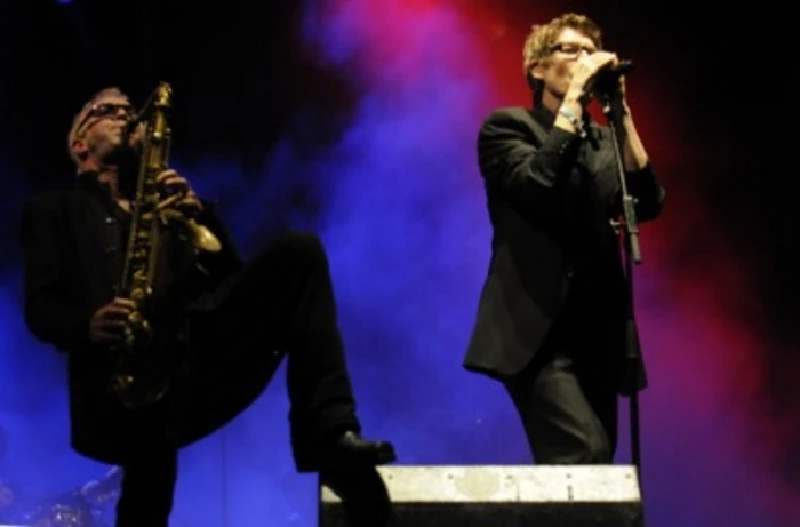
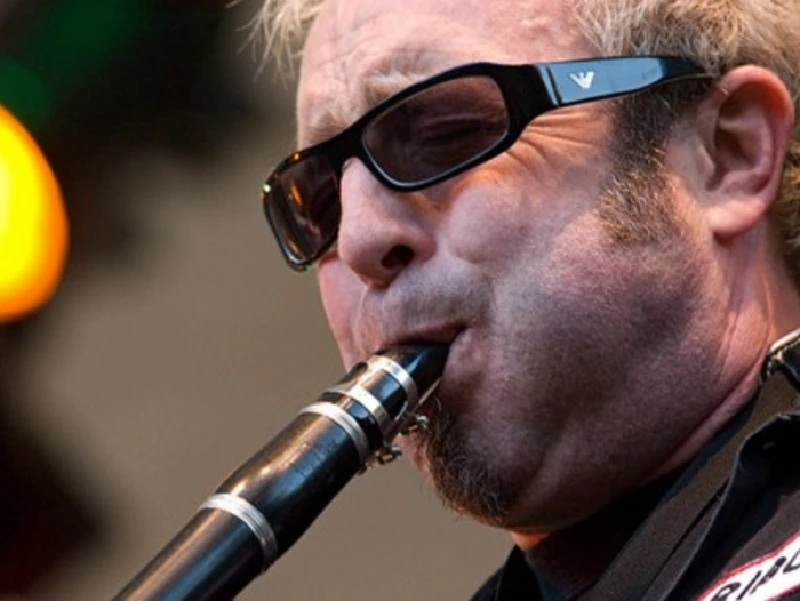
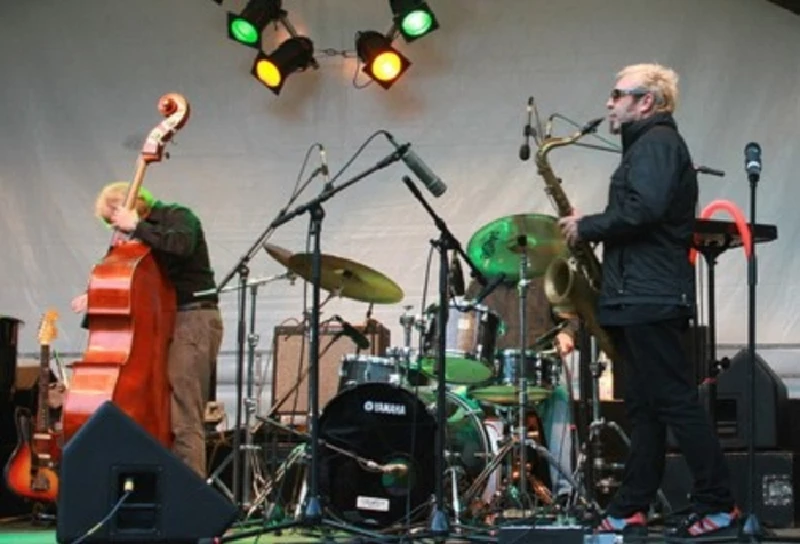
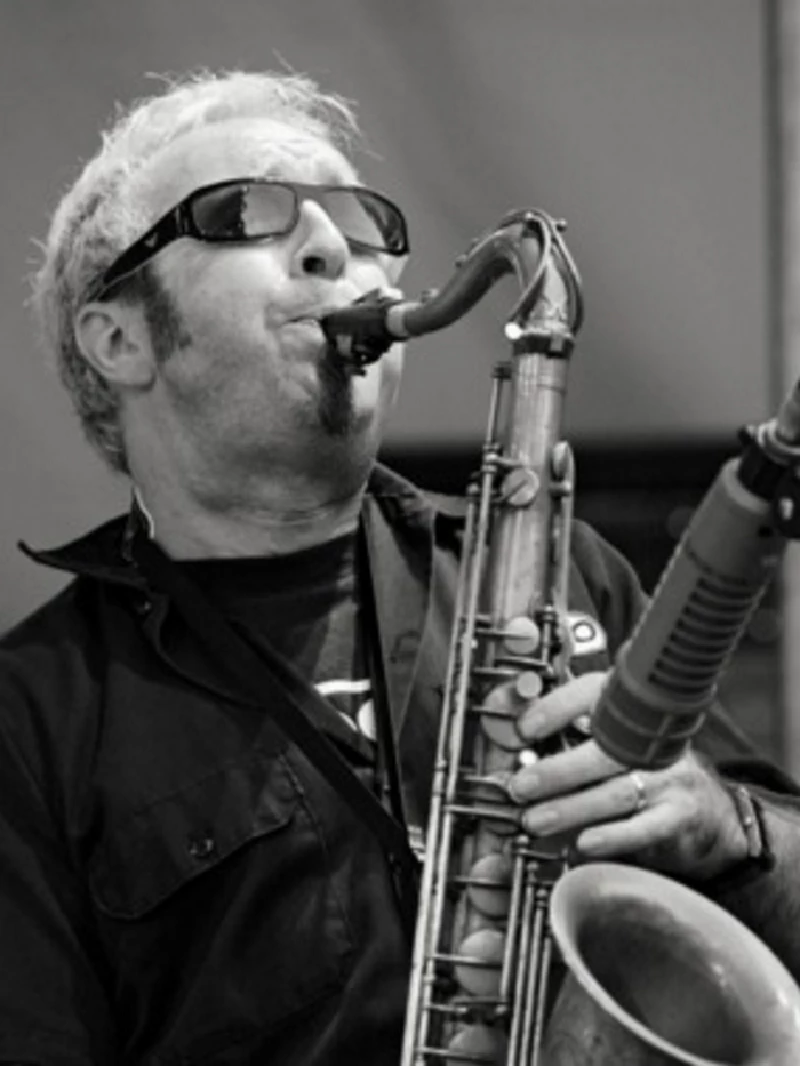
Visitor Comments:- |
| 826 Posted By: Ann MARIE , Canton, OHIO on 16 Apr 2017 |
|
Thank you Mars for getting me into your fantastic Pyschedelic Furs show on April 13 at KENT STAGE ohio
Please come to house of blues cleveland, you guys sounded awesome.
I never seen you in concert, ALWAYS wanted too.
You were outside & made my night
ANN MARIE
|
| 344 Posted By: Frank O, NY on 27 Aug 2010 |
|
Mars is awesome!
|
| 286 Posted By: Chet Bronstein, Jolida OK on 17 May 2010 |
|
The guy can play! He should do a collaboration with Venus Williams...that would be cool!
|
| 244 Posted By: Melinda, Florida on 30 Dec 2009 |
|
It's nice to see Mars progress with his music. I had met him before he became popular with the Waitresses. I was someone he killed time with basically. No one special - But that's O.K. I'm glad he found companionship with someone. Doing what you love most is so important, as far as fulfilling your life's potential. And he's done just that.
|
soundcloud
reviews |
|
Lighthouse (2023) |
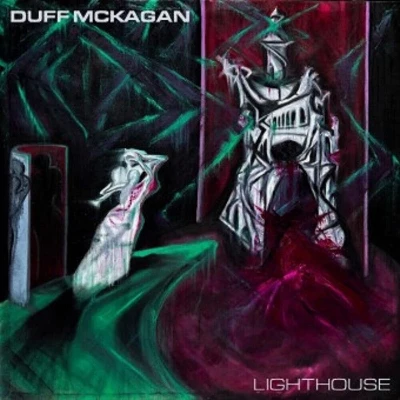
|
| Versatile and reflective third solo album from Guns N’Roses founder member and bass player Duff McKagan |
most viewed articles
current edition
Carl Ewens - David Bowie 1964 to 1982 On Track: Every Album, Every SongArmory Show - Interview with Richard Jobson
John McKay - Interview
Colin Blunstone - Thalia Hall, Chicago, 16/7/2025
Bathers - Photoscapes 1
Loft - Interview
Billie Eilish - O2 Arena, London, 10/7/2025
Visor Fest - Valencia, Spain, 26/9/2025...27/9/2025
Sir Tim Rice - Interview
Robert Forster - Interview
previous editions
Heavenly - P.U.N.K. Girl EPManic Street Preachers - (Gig of a Lifetime) Millennium Stadium, Cardiff, December 1999
Peter Perrett - In Dreams Begin Responsibilities Interview Part One
Beautiful South - Ten Songs That Made Me Love...
Boomtown Rats - Ten Songs That Made Me Love....
Coldplay - Wembley Arena. London, 16/8/2022
Prolapse - Interview
Oasis - Oasis, Earl's Court, London, 1995
Trudie Myerscough-Harris - Interview
Pixies - Ten Songs That Made Me Love...
most viewed reviews
current edition
Davey Woodward - Mumbo in the JumboSuzanne Vega - Flying With Angels
Nigel Stonier - Wolf Notes
Vinny Peculiar - Things Too Long Left Unsaid
Lapsley - I'm a Hurricane, I'm a Woman In Love
Philip Jeays - Victoria
Taylor Austin Dye - Sick of Me
Billy Nomates - Metalhorse
Morcheeba - Escape The Chaos
HAIM - I Quit
Pennyblackmusic Regular Contributors
Adrian Janes
Amanda J. Window
Andrew Twambley
Anthony Dhanendran
Benjamin Howarth
Cila Warncke
Daniel Cressey
Darren Aston
Dastardly
Dave Goodwin
Denzil Watson
Dominic B. Simpson
Eoghan Lyng
Fiona Hutchings
Harry Sherriff
Helen Tipping
Jamie Rowland
John Clarkson
Julie Cruickshank
Kimberly Bright
Lisa Torem
Maarten Schiethart